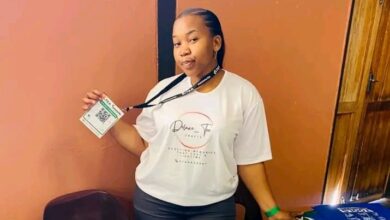Collaboration Is Key to Match Skills Development to Labour Needs

Collaboration Is Key to Match Skills Development to Labour Needs. A breakaway session at the Women Creating Wealth (WCW) Summit recently highlighted the critical misalignment between education systems and labour market demands across Africa.
By aligning skills development with labour market demands, fostering vocational training, and addressing infrastructure gaps, Africa can unlock the employment potential of its youth, ensuring a brighter future for all.
The summit, an initiative of the Graça Machel Trust, brought together over 200 women entrepreneurs, ecosystem builders, donors, and thought leaders to discuss solutions for creating employment opportunities for young people. Participants assessed the current state of African entrepreneurship, reflected on progress, and outlined a path for the future.
Naomy Lintini, Chief Technical Advisor at the International Labour Organization (ILO), emphasised the disconnect between education systems and market demands. “A lot of the time, education is running by itself, and not considering what the market needs,” Lintini said, citing the growing number of unemployed graduates as evidence of this misalignment.
The session explored strategies to bridge this gap. Singapore was highlighted as a global model where Education and Labour Departments collaborate to align skills development with labour demands. South Africa’s initiative to expand vocational training and certify informally trained workers was also commended as a practical step toward addressing the skills mismatch.
Digital skills were identified as a significant opportunity for youth employment. Lintini noted that “every industry has IT and digital issues,” making the digital sector a fertile ground for youth absorption. However, she cautioned against overlooking the infrastructure gaps across Africa, including limited internet and electricity access.“You can’t do IT where there is no IT infrastructure,” Lintini said. “We need to create that value chain and linkage.”
Funding challenges were also discussed. A participant shared that many youth are unable to participate in skills programmes due to delayed funding or lack of transport. Ayanda Phumo, Director of Ayanda Phumo Consulting and WCW Youth Advisory Group member, presented an initiative to collect data on entrepreneurs’ skills needs through the Graça Machel Trust, aiming to better understand job creation potential.
Key recommendations included:
- Aligning education with labour market needs.
- Increasing the focus on vocational training alongside higher education.
- Ensuring youth are central to co-creating employment solutions
Session moderator Mercy Gichangi, WCW Country Lead for Kenya, concluded, “We need to put youth at the centre – not just as beneficiaries, but to co-create solutions for their own futures.”
By aligning skills development with labour market demands, fostering vocational training, and addressing infrastructure gaps, Africa can unlock the employment potential of its youth, ensuring a brighter future for all.




